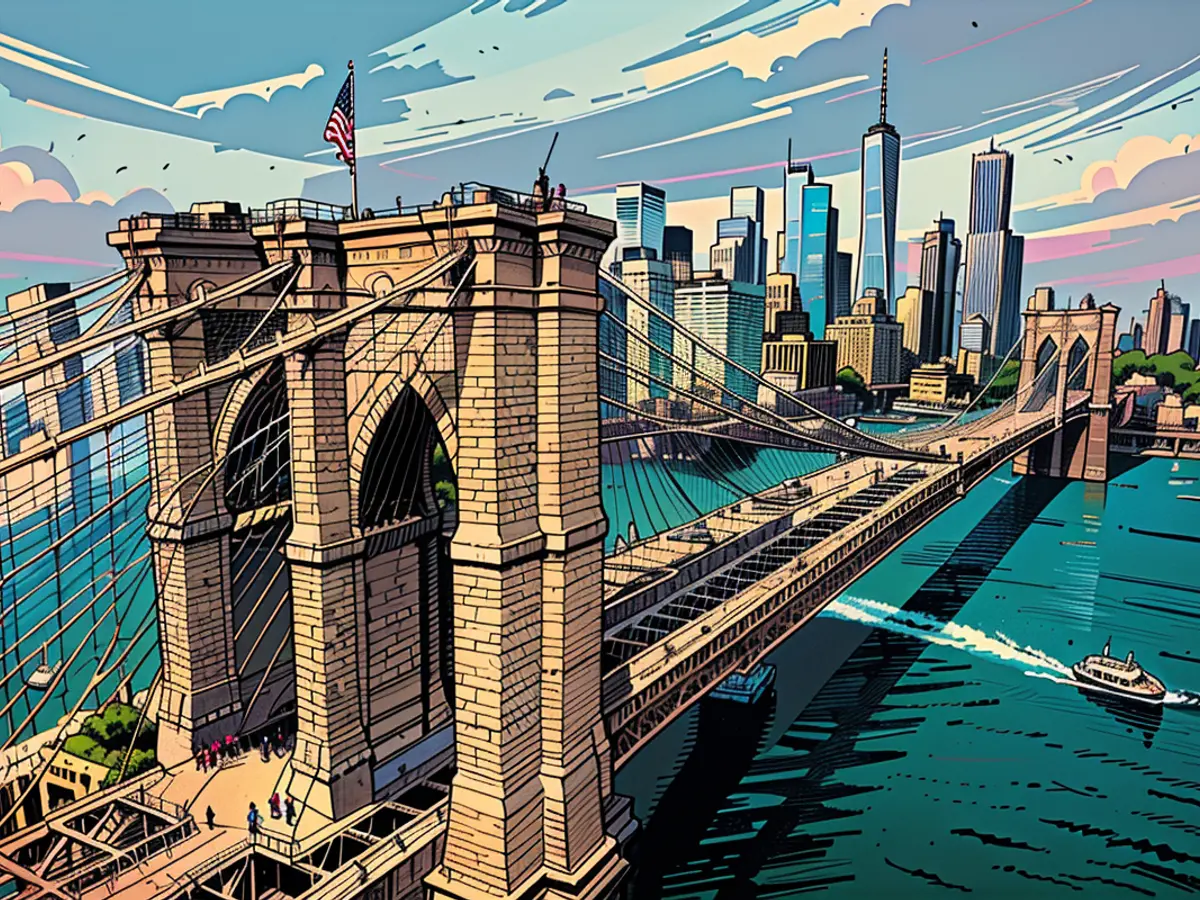Remarkable shift signals a powerful statement.
To traverse what used to be the world's longest suspension bridge at the time, the fare was five cents for a horse and rider, ten cents for a horse-drawn carriage, five cents for each cow, and two cents per sheep or hog. Meanwhile, pedestrians had it easy; they only needed to pay a penny.
The tolls eventually vanished after a few decades, and it's been free to cross the bridge and the three others that link Brooklyn and Queens, where most New York City residents live, with Manhattan, a place where many of them work. (Ignore the fraudsters like George C. Parker, who became famous for selling the Brooklyn Bridge to unsuspecting New Yorkers who thought they could collect toll fees to recover their costs.)
All throughout the past century, mayors and town planners have attempted to impose tolls on the East River bridges but have been met with failure. However, it wasn't until 2019 that they found a winning strategy - a first of its kind congestion pricing plan that would collect $15 from the majority of cars entering Manhattan at or south of 60th street from any direction, including cars driven by New Jersey residents.
After the plan's announcement, New York's governor, Kathy Hochul, exclaimed, "This plan means cleaner air, better transit, and less congestion on the streets of New York City."
Recently, Hochul abruptly canceled the plan just weeks before the tolls were due to commence, leaving many confused, especially since the state relied on the revenue generated to improve New York City's public transportation system and had already spent hundreds of millions of dollars on cameras and other devices to track and charge drivers entering Manhattan.
"A $15 charge may not mean a lot to someone who has the means," Hochul said, "but it can break the budget of a working- or middle-class household."
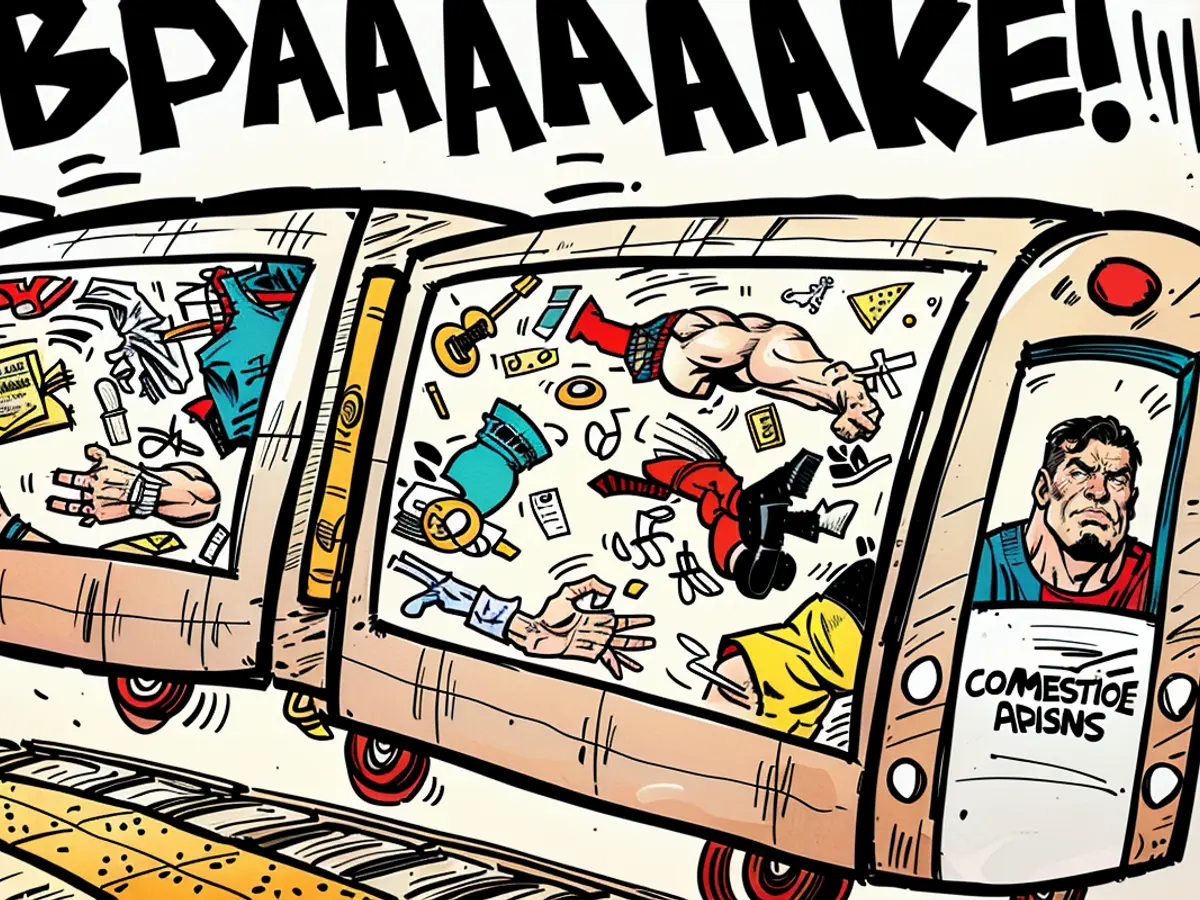
Politicians suspected an ulterior motive: the fear that voters resentful of the tolls could take their revenge on Hochul's fellow Democrat-backed candidates contesting for Congress.
This year, politicians across the globe experienced a reality check from voters regarding everyday concerns.
In India, Prime Minister Narendra Modi's party surprisingly failed to acquire an outright parliamentary majority. The Journal cited "unhappiness with economic issues" and "the disconnect between two images of India: one that portrays it as a global economic powerhouse with affluent billionaire moguls and the other showing millions of people struggling with dim job prospects and escalating expenses."
While Hindu nationalist themes didn't seem to resonate with voters as much as Modi expected, the future for India's large Muslim community is uncertain. "With the ruling Bharatiya Janata Party (BJP) refusing to allow the Muslim community any say in the country's decision-making processes, India's most significant minority group, the third largest Muslim population in the world, remains voiceless," wrote Ziya Us Salam.
South Africa's African National Congress, which has been in power for 30 years, is struggling to form a governing coalition after losing ground to the opposition in the recent elections. Key factors responsible for this include a stubbornly high unemployment rate, persistent economic disparities, extensive corruption, and poor public service delivery in impoverished areas.
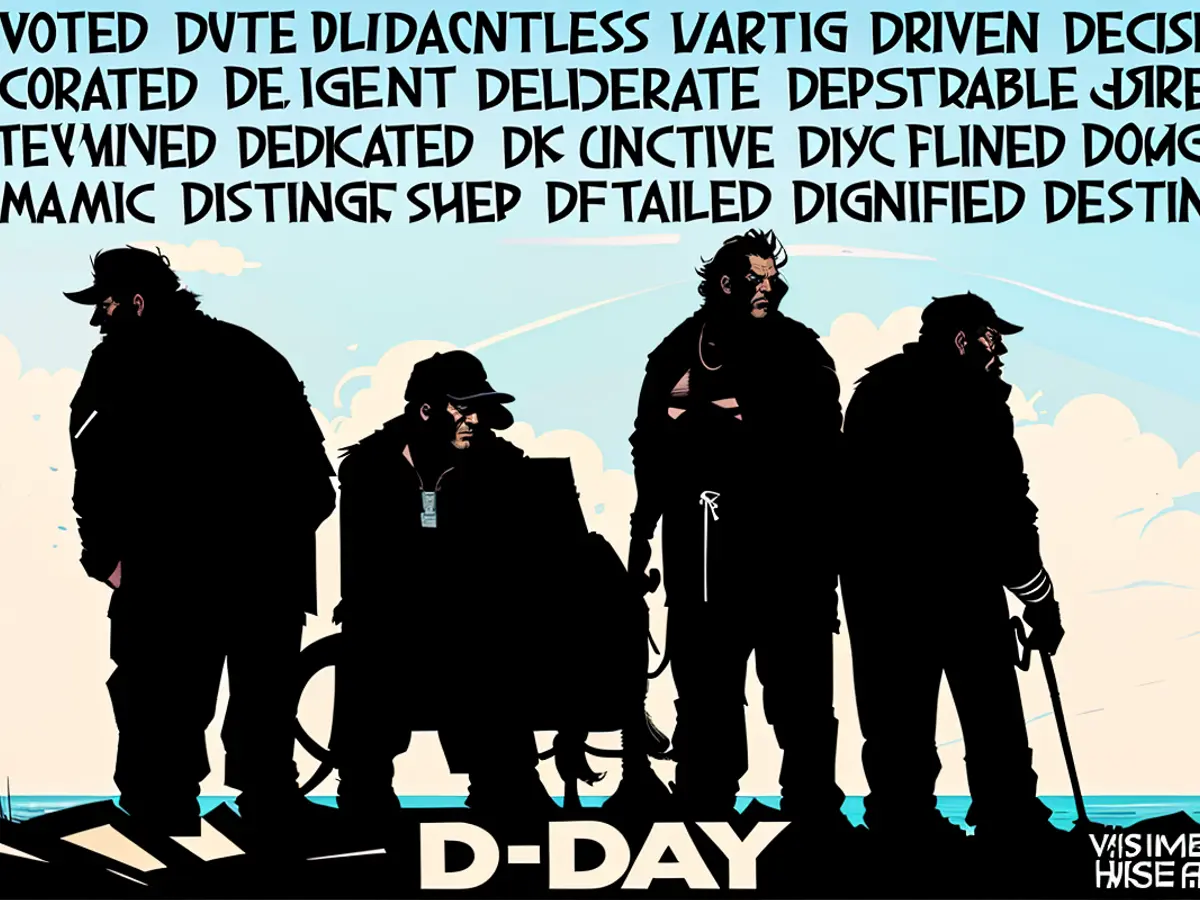
Could there be a lesson here for President Joe Biden's reelection bid? In a poll, voters rate Biden poorly for managing the economy. Despite unemployment remaining low, a thriving stock market, and stronger economic growth compared to many other nations, "American citizens see no end to the one-two punch of high inflation and high interest rates - and they can't withstand it any longer," claimed Dana M. Peterson and Stephanie Guichard, two economists.
"People feel increasingly strapped. Their pandemic savings have run out. Wage gains are slowing. Household debt is on the rise. Increased debt and interest rates indicate that consumers are spending more on interest payments, with less to spend on goods and services. Moreover, more families are concerned about their ability to repay their debts, especially those who have already reached their credit limits."
D-Day at 80
The Battle of Normandy took place 80 years ago on June 6, marking the start of a campaign to overcome Nazi Germany. "Some 29,000 American troops lost their lives in the Battle of Normandy, as the war claimed the lives of over 70 million people, about one in every 30 people who were alive at its onset," wrote Frida Ghitis.
In France last week, Biden and other Western leaders gathered to honor the event. Meanwhile, Biden used the opportunity to emphasize the necessity of preserving democracy.

"Interestingly, democracy's future may rely on the next president of the United States, Donald Trump, who has restored the term 'America First' - used in the 1930s and 40s by those urging the U.S. to keep its distance, even as Hitler waged war on Europe," Ghitis stated.
"As the potential changes in the U.S. approach to European defense and the Ukraine conflict unfold, the President is sparking 'existential' anxiety among U.S. allies."
"Usual candidates tend to shift towards the center following their nominations," Liam Kerr pointed out, noting that Hillary Clinton failed to make this move in 2016.
"Movement towards the center is how Democrats flipped seats in 2022, engaging moderate Republicans. This trend continued this year, with moderate Tom Suozzi securing the House seat previously held by George Santos in a New York special election in February," he added.
Last week, Biden took his biggest step towards the center by implementing immigration policies resembling those of Trump.

"It's ironic that Biden, who once denounced many of Trump's immigration measures, now advocates for them," Raul A. Reyes stated. "While candidate Biden promised to restore asylum protections in 2019, President Biden introduced a new rule this year presuming migrants ineligible for humanitarian relief unless they had applied for asylum in another country before reaching the US."
"The president is again contradicting his established principles. In 2019, Biden said, 'The idea that a country of 330 million people cannot absorb people who are in desperate need and who are rightly fleeing oppression is merely absurd.' Yet, the same president who defended the rights of asylum seekers may now disregard their legal and human rights so easily," Reyes further mentioned.
Hunter Biden
The trial of the president's son, Hunter Biden, followed in quick succession after Trump's trial, opening up possibilities for comparison between the two unique cases.
"If Hunter Biden broke the law, he should be held accountable," SE Cupp asserted. "In this charged political climate, it's crucial for the justice system to remain fair and impartial, especially for one particular political side."

"However, there's a notable distinction between Hunter's trial and Trump's. Cupp highlighted that "Democrats aren't rallying around Hunter the way they did with Trump."
"They're not accusing the prosecution of a witch hunt. They're not declaring the justice system corrupt. They're not besmirching the judges and their families. They're not embellishing on Biden's behalf in front of reporters and TV cameras."
A potential legal misstep?
Later, W. James Antle III suggested that both the Trump and Hunter Biden trials could be seen as errors in the long run. "Though the cases against Trump may appear distinct, each being pursued independently by different jurisdictions, they seem like a coordinated attack to some members of the public. This lack of prosecutorial discretion in the New York case might undermine all the prosecutions, leading to loss of trust in the justice system," he added.
"If Trump wins the election and behaves as Democrats warn, they could come to regret the precedent established with the first felony conviction of a former and potential president - one many believe is the weakest of the current cases," Antle warned.
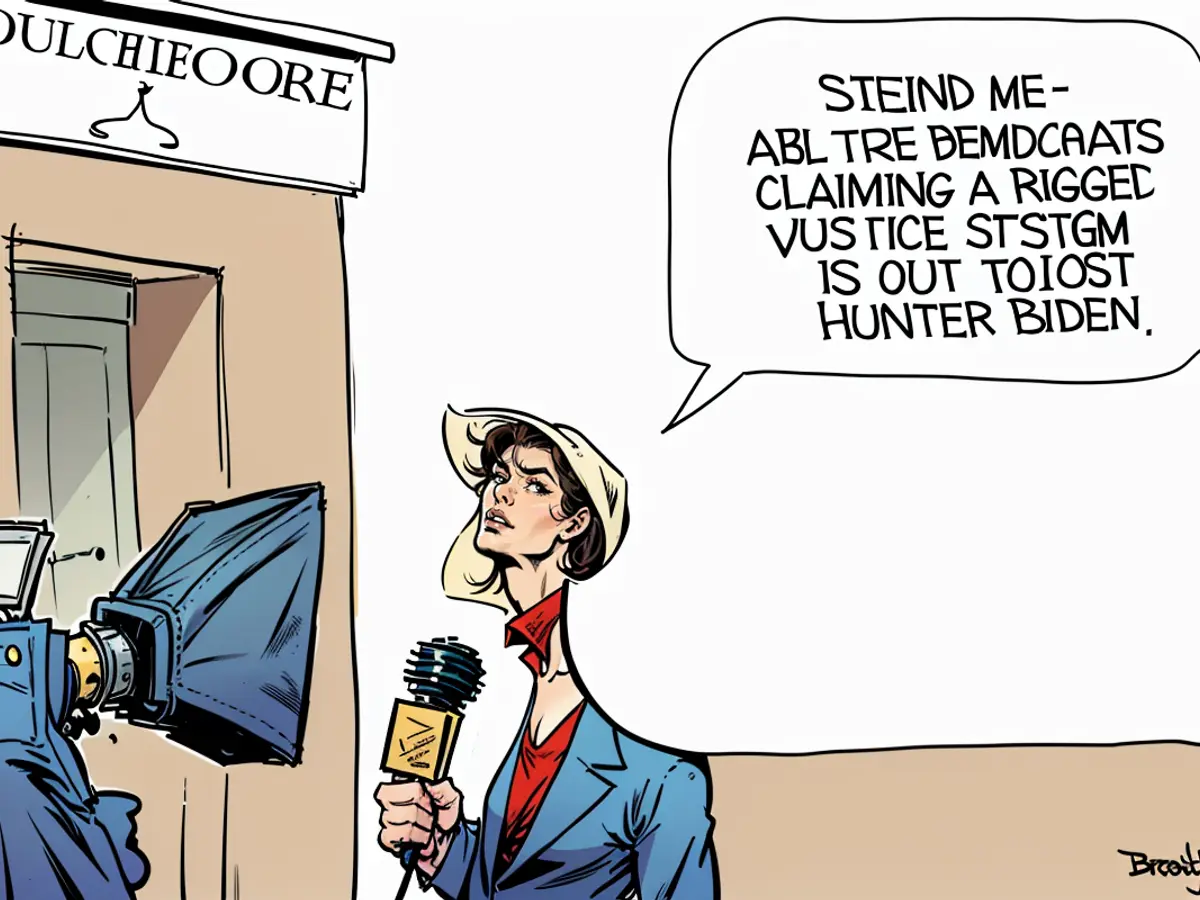
Judges in Washington D.C., Georgia, and Florida have taken steps to prevent the remaining three Trump prosecutions from reaching a trial before the election. Julian Zelizer commented that "Judge Aileen Cannon, a Trump appointee overseeing the Florida classified documents case, has significantly reduced the likelihood of a decision before November 5."
"Judge Cannon has granted access to the court to third-party groups not associated with the case, postponed some hearings without setting new dates, scheduled additional hearings, and granted more time for arguments regarding Trump's demand to nullify the appointment of special counsel Jack Smith," Zelizer continued.
"Despite the lack of verdicts in the remaining cases, voters could have less decisive information to base their decisions on when they cast their ballots. If Trump wins re-election, he may use his presidential powers to pardon himself in the federal cases."
For more insights:
Dean Obeidallah: The possible consequences of Trump's 'breaking point' warning
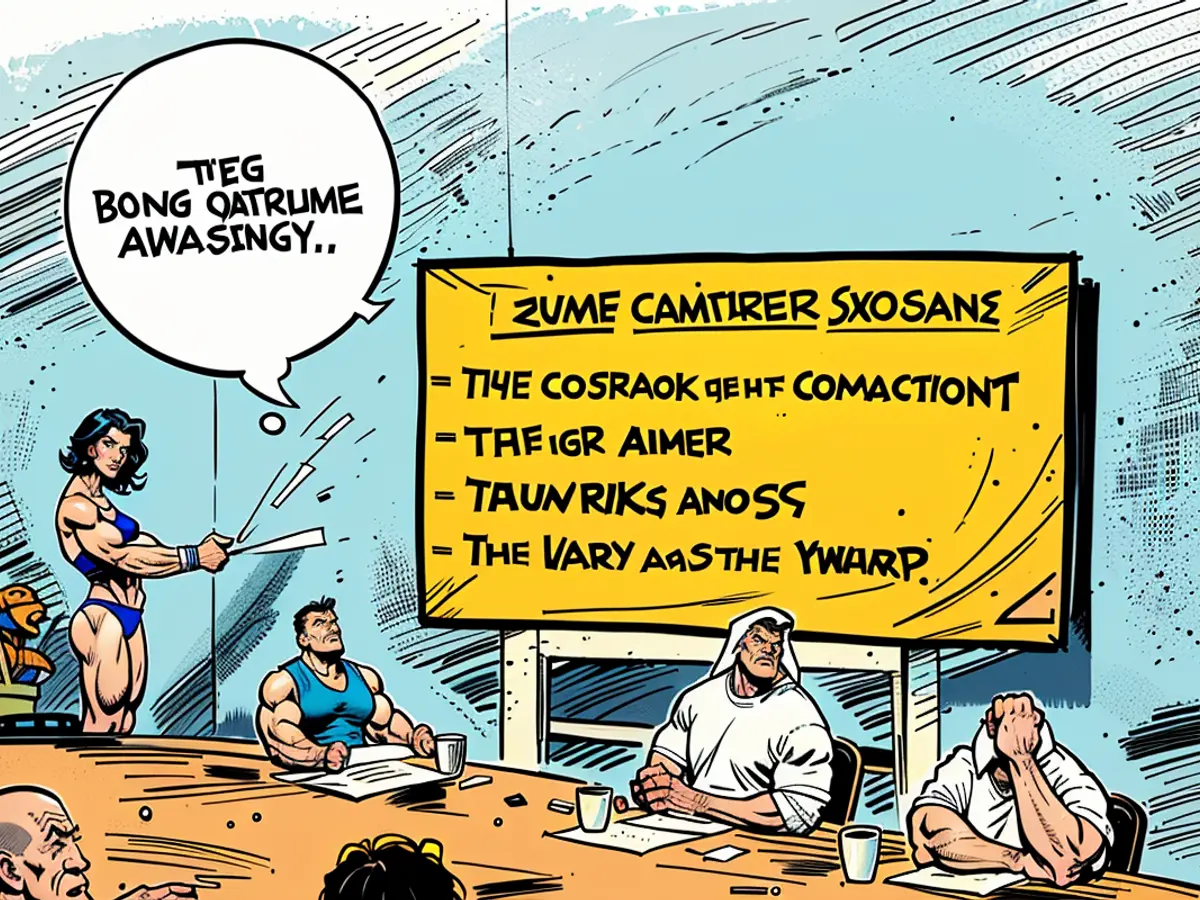
David Orentlicher: Congress has no basis for impeaching Merrick Garland
Thomas Balcerski: Lessons learned from a prisoner who ran for president
"Graceland was the home of an individual born in an unpretentious dwelling without indoor plumbing, yet managed to reach unprecedented heights of achievement, never forgetting his humble origins. In the world of basketball, WNBA freshman Caitlin Clark is a prime example.
Recently, controversy arose after a game between the Indiana Fever and the Chicago Sky, primarily featuring former college rivals Clark and Angel Reese. The focus shifted from their face-off to an incident that resulted in a foul against Clark from Chennedy Carter. The referee initially deemed it a personal foul but later elevated it to a flagrant one. The incident prompted heated debates about whether Clark was being unjustly targeted and if the league should intervene.
A prominent ESPN personality, Pat McAfee, described Clark as the 'one white girl' for Indiana's team and a superstar. Some believe McAfee's intention was to rile people up, while others think he didn't understand the severity of his words. McAfee later apologized for his remark.

The wider context is the significant loneliness experienced by Americans. Jill Filipovic noted that pre-pandemic, there was a lack of friendships and social interaction, which escalated during COVID-19 when more people worked from home, engaged with friends online, and learned from screens. Consequently, there has been a notable surge in discussions about celibacy. She posits that social decline is to blame, further exacerbated by empowered young women confronting a pool of young men shaped by years of online porn and video games.
In a different context, artificial intelligence poses potential dangers. Harvard Law professor Lawrence Lessig discussed strategies for whistleblowers who've signed non-disparagement agreements yet wish to alert the public about potential disasters in this burgeoning field. He represents a group of former employees pro bono, highlighting the importance of protecting their rights to warn about safety issues. Lessig warns that these unregulated AI companies are some of the most dangerous in the country.
Remaining topics include the ongoing Fauci scandal, the recent law tackling online harassment in New York, Apple's evolution, medical advancements, 'Hit Man's' mastery of nuance, France's discomfort with the Paris Olympics, and cricket's attempt to establish itself in the US. Cricket is hosting the T20 World Cup, and the sport is trying to determine if it can permanently stake its claim, with a particularly thriving community of cricket fanatics among South Asian and Caribbean immigrants."
"In the field of artificial intelligence, companies vying for dominance are faced with significant risks, asserted Harvard Law professor Lawrence Lessig. Former workers seeking to raise public awareness about these dangers find themselves in a tricky situation; they stand to lose millions due to non-disparagement agreements, but Lessig is representing them on a pro-bono basis. He believes the act of allowing employees to openly discuss safety concerns would prevent future disasters in the field of artificial general intelligence. Meanwhile, this eclectic mix of topics also covers Fauci's ongoing scandal, New York's fight against online harassment, Apple's evolution, medical advancements, the nuance of 'Hit Man,' the Paris Olympics, and cricket's efforts to gain a foothold in mainstream America."
![[Paraphrased:]
- Bill Bramhall in focus here. 07_Bill Bramhall](https://cdn.aussiedlerbote.de/content/images/2024/06/09/324523/jpeg/4-3/1200/75/07-bill-bramhall.webp)
Read also:
In the debate over the New York congestion pricing plan, some New Yorkers felt that the proposed $15 toll was unfair and could have a significant impact on working- or middle-class households (opinions about the fairness of the toll).
Despite the controversy surrounding Hunter Biden's trial, it has been handled differently than Donald Trump's trial, with Democrats not rallying behind Hunter as they did Trump, and avoiding accusations of a witch hunt or corruption (differences in reactions to Hunter Biden's trial compared to Trump's trial).
